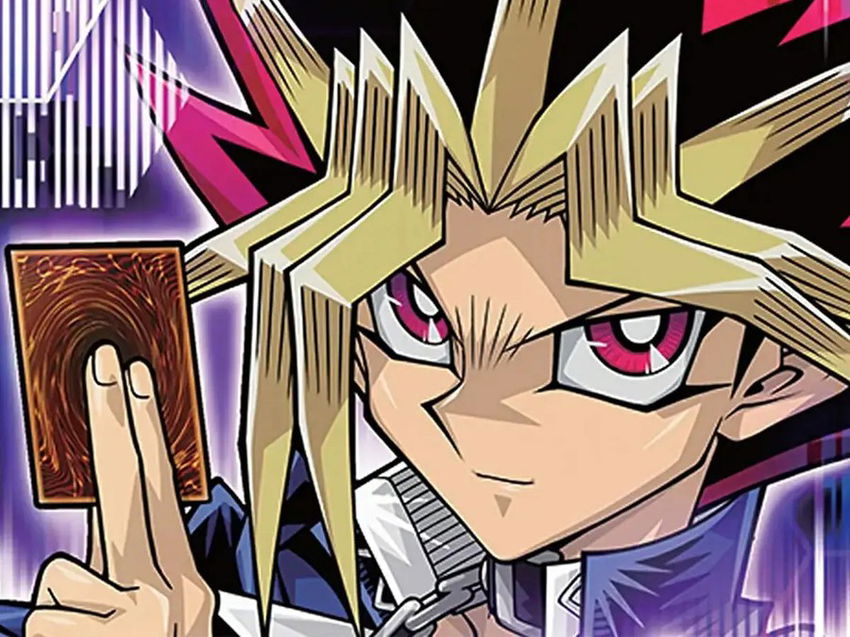Yu-Gi-Oh! is considered one of the great Japanese manga series, and its influence across the entertainment industry in the east has been astounding. The original comics ran from 1996 to 2004, spanning 38 volumes. Ever since the early releases, they have led to spinoffs and adaptations in other areas of entertainment including gaming. The unique theme of the central character awakening a gambling spirit is one that many people can relate to, as casino games are hugely popular around the world.
Caption: Yu-Gi-Oh! news on YouTube.
A Trading Card Game Inspired by Casino Offerings
One of the best-known pieces of related merchandise to the Yu-Gi-Oh! series is the Yu-Gi-Oh! Trading Card Game. It was conceived by Konami in 1999 and has been running for 23 years. The game takes a lot of inspiration from casino classics like roulette, with Roulette Spider featuring the iconic red and black colors on a green background. Cards with designs like this clearly appeal to the people who play roulette online nowadays. Players are used to seeing obscure variants of the traditional game, with some of the most popular options being titles like Super Stakes Roulette and First Person Lightning Roulette.
Over 35 billion cards have been sold in the record-breaking game since its release, making it one of the most successful card games ever invented. Indeed, it has even made it into the Guinness World Records for this feat in the past. The popularity of the title has spurned spinoffs that offer players a slightly different way to play the games. For instance, there’s Yu-Gi-Oh! Speed Duel and Yu-Gi-Oh! Rush Duel, which both offer players a faster way to enjoy the game.
One of the reasons why this trading card game was able to get so much appeal was the popularity of the manga series. However, its global appeal is most certainly down to its links to casino games. These offerings are well known across the planet, and people from every culture are familiar with the main classics like roulette and blackjack. The Yu-Gi-Oh! Trading Card Game also takes inspiration from slots, which are the most played casino games in the world. For example, there’s the Monster Slots card that allows players to draw a random card and reveal it. If it’s a monster, players can Special Summon it.
People who like casino offerings may be keen to play games that share similar features. Along with the Yu-Gi-Oh! Trading Card Game featuring the names of some of the most popular games, it also shares some gameplay elements with gambling titles. For instance, there are plenty of random events, the cards have to be shuffled, and the aim of the game is to better your opponent and win.
Strange Video Game Adaptations
The collectible card games may be the best way to enjoy the themes of Yu-Gi-Oh!, but there have been plenty of other ways to get into the Japanese offering over the years. In the modern age, the most successful franchises are the ones that manage to get onto as many platforms as possible. This includes cornering different sections of the gaming market, accounting for the various platforms available. By putting content out there in all the corners of the entertainment industry, franchises have the highest exposure possible and can allure fans to their other offerings.
Caption: A video about the evolution of Yu-Gi-Oh! games since 1998.
Yu-Gi-Oh! has led to a multitude of video game spinoffs that have served to enhance its notoriety. Some developers have come up with particularly strange and innovative games. The quirkiness of the franchise is, perhaps, one of the reasons why it has been such a worldwide phenomenon.
Yu-Gi-Oh! Duel Terminal was one of the most popular video game adaptations, and it gave players a brand-new way to enjoy the creatures from the franchise. It was an arcade game that allowed players to use cards on the screen and then watch their monsters clash in 3D. There was also Yu-Gi-Oh! Capsule Monster Coliseum, which was designed to appeal to audiences who loved the well-known Pokémon games. This title for the PlayStation 2 followed a similar format and players had to do battle on a chess board-inspired battlefield. They could level up their monsters by winning contests.
Various Anime Series Spinoffs
The other key way that Yu-Gi-Oh! was able to become one of the most successful Japanese franchises of all time was through numerous anime adaptations. Since the first release of the manga comics, there have been ten series and four movies. There’s even a new offering, Yu-Gi-Oh! Go Rush!!, which was released earlier this year.
The most successful anime to date was Yu-Gi-Oh! Duel Monsters, which ran for four years and 224 episodes between 2000 and 2004. It was directed by Kunihisa Sugishima, who is recognized as one of the best anime makers in the business. He was also responsible for Mobile Suit Zeta Gundam and Gokudo.
Yu-Gi-Oh! 5D's was the other main anime spinoff of the manga comics, and the offering from Katsumi Ono ran for 154 episodes from 2008 to 2011. The series is all about characters who play the game, Duel Monsters. It’s well known for introducing Synchro Monsters to the Trading Card Game and helped push the franchise forward in new directions.
The newest anime adaptation is Yu-Gi-Oh! Go Rush!!, and this is the seventh televised spinoff in the franchise. It began in April 2022 and there have been 28 episodes to date. This unique concept focuses on an alien who comes to earth to search for Rush Duel.
Yu-Gi-Oh! has taken the modern franchise model and done it really well. It has offerings almost everywhere throughout the entertainment industry, meaning that it has an incredibly high chance of gaining attention from a broad demographic. Other manga series went on to follow in its footsteps and enacted a similar multi-platform plan.












— 评论 0
, 反应 1
成为第一个发表评论的人